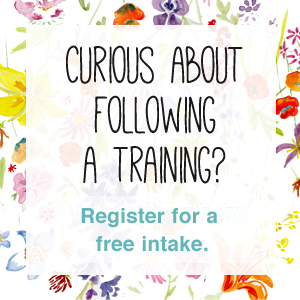 Mindfulness practice gives us access our inner capacity for living. It is the capacity we all have to dwelve in our inner selves, access our inner resources, sometimes deeply hidden, to deal with life, with all the beauty, the good things and all the challenges and the bad things we encounter in life.” – Jon Kabat-Zinn
Mindfulness practice gives us access our inner capacity for living. It is the capacity we all have to dwelve in our inner selves, access our inner resources, sometimes deeply hidden, to deal with life, with all the beauty, the good things and all the challenges and the bad things we encounter in life.” – Jon Kabat-Zinn
Being “mindful” simply means being aware of the present moment. Present moment awareness is an inherent ability we all have and yet it is something that we can easily lose track of in our daily life, especially when we are particularly busy. This can result in us missing out on the beauty of many moments and also unconsciously becoming stuck in conditioned ways of thinking that may be limiting and even harmful to ourselves or others, making us more prone to stress, anxiety and depression. Cultivating mindfulness allows us to develop another way of looking at ourselves and the world around us, a more positive, open and kinder way. Instead of spending considerable amounts of energy replaying the past, stressing or worrying about the future, our work, relationships and all the things we need to get done, we are able to gather our attention to fully enjoy the moments of our life as they unfold and respond consciously to stress and difficulties that arise rather than react automatically.
Bringing more present moment awareness in our lives may sound simple but it is not easy, this process requires commitment and regular practice. This is why based on extensive research, an intensive 8 week program combining meditation techniques and Western psychology has been created (by pioneer Jon Kabat-Zinn) to accompany people experiencing stress and equip them with valuable skills to support them towards finding greater well-being.
Mindfulness is suitable for anyone who experiences some degree of stress and aspires to more peace of mind. Mindfulness is rooted in the ancient Buddhist art of meditation, but its essence and lessons can be learned and practiced by anyone, regardless of religious or cultural background. That said, there are times and circumstances in one’s life when following an intensive training may be more suitable for you.
Its relevance in our current society and global context is one of the very reasons why mindfulness has become increasingly mainstream and popular over the last years, spreading to the Western world, and permeating all kind of different industries ranging from healthcare to education to parenting, businesses, leadership and even government (parliament officials in the UK and Netherlands are taught mindfulness skills and in the UK they are busy with a research initiative on how these skills can benefit society).
My training is in English language to cater both to Dutch natives and the expat community in and around Amsterdam experiencing work or personal stress or difficulties and looking to bring more of a sense of enjoyment, balance and well-being into their daily life.
Mindfulness can benefit people from all walks of life to some degree or another, often very significantly. It is a strongly evidence-based practice and abundant research has shown the extent of physical, emotional and mental benefits. The interest for mindfulness continues to grow exponentially as people experience for themselves the tremendous benefits of this practice.
- Stress Reduction (studies worldwide have found that meditation reduces the key indicators of chronic stress, including hypertension)
- Anxiety, depression and irritability all decrease significantly through regular meditation practice. (Clinical trials have shown that mindfulness is as effective as anti-depressant medication with no side effects)
- Mindfulness reduces insomnia
- Concentration and memory improves, reaction times become faster and both mental and physical stamina increase.
- Meditation has been found to be effective in reducing the impact of serious health conditions such as chronic pain and cancer
- Meditation helps relieve alcohol and drug dependence
- Studies have now shown that meditation bolsters the immune system, helping to fight off colds, flu and other diseases.
- Mindfulness strongly reduces our emotional reactivity, impacting our relationships
- Regular meditation practice has proven to change and evolve significantly certain patterns in the brain that until very recently were considered to be fixed by scientists.
Here´s a short video about the benefits from the founder of the Mindfulness-Based Stress Reduction (MBSR) Program, Jon Kabat-Zinn.
The key to our happiness and fulfillment lies within ourselves, not in the outside world or our external circumstances. Most of us intuitively know this, and yet, even if we are willing, it is not that straightforward to fully connect with our inner voice. Especially nowadays with 24/7 connectivity, the ways in which we get pulled out of ourselves are numerous and the distractions that we experience are ever-increasing. We can get very caught up in our heads, preoccupied by all the things we need to get done without even knowing why we are doing them, and busy with where we want to be rather than accepting of where we are. If our actions are not rooted firmly from within, they can lack meaning and purpose.
Mindfulness is as an effective counterbalance to the hectic pace of our everyday lives. Through meditation, we take the time to be still, minimise external distractions and connect with what is going on inside, in our body and mind, and that, in turn, allows us to connect more fully with what is outside, other people and our environment. A regular practice provides us with some peace of mind in the midst of a hectic day and ultimately gives us clarity and perspective on what really matters, beneath the surface of our busy lives.





